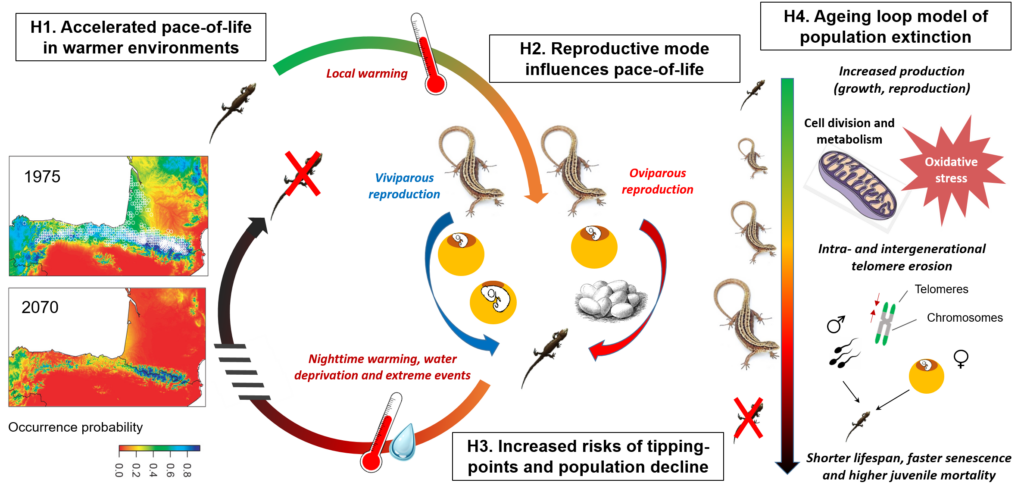Tipping points in climate-induced life history plasticity in a reproductively bimodal lizard
A project funded by Agence Nationale de la Recherche in France to support a group of six CNRS and University laboratories investigating warming effects on pace-of-life acceleration and senescence.

About the project
At the current warming rate, many organisms should go extinct if they are not able to disperse or adapt locally, which often involves plastic responses. In ectotherms, warming influences plastic life history traits with an acceleration of early life production at the expense of longevity and senescence. This may be due to trade-offs involving warming-induced oxidative stress and telomere shortening. Although pace-of-life acceleration may provide short-term benefits, it also increases sensitivity to limited resources, extreme climate events and unusual nighttime thermal conditions. Thus, in an increasingly warmer climate, ectotherms could reach critical physiological thresholds that would precipitate their decline. To date, physiological mechanisms and ecological consequences of this pace-of-life acceleration are poorly characterized. Here, we will combine experimental, observational and analytical approaches to unlock critical gaps in our understanding of thermal plasticity of life history. We will focus on a bimodal reproductive lizard (Zootoca vivipara), which offers a unique context to analyze how evolutionary transition between oviparity and viviparity influenced pace-of-life acceleration. Using long-term data sets and surveys across climatic gradients, we will document patterns of pace-of-life acceleration in response to climate warming in the two reproductive modes, focusing on vulnerable populations of the warm margin. In addition, we will perform outdoor and laboratory experiments to identify physiological tipping points in the context of day-night asymmetry of warming and extreme climate events. Given their major potential role in this thermal plasticity, non-energetic trade-offs will be quantified using longitudinal and cross-sectional assays of oxidative stress and telomere length dynamics. Altogether, this project will highlight patterns, mechanisms, and consequences on population viability of pace-of-life acceleration in response to climate warming.
